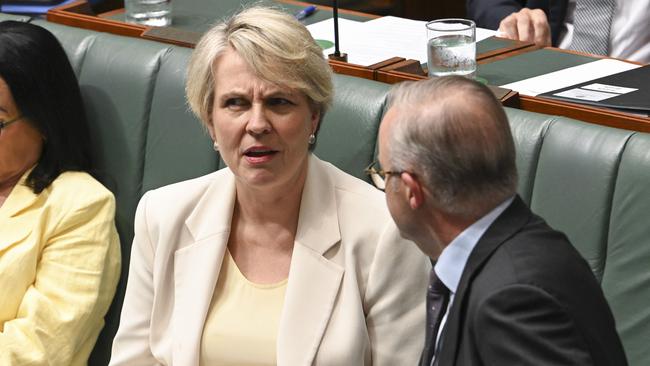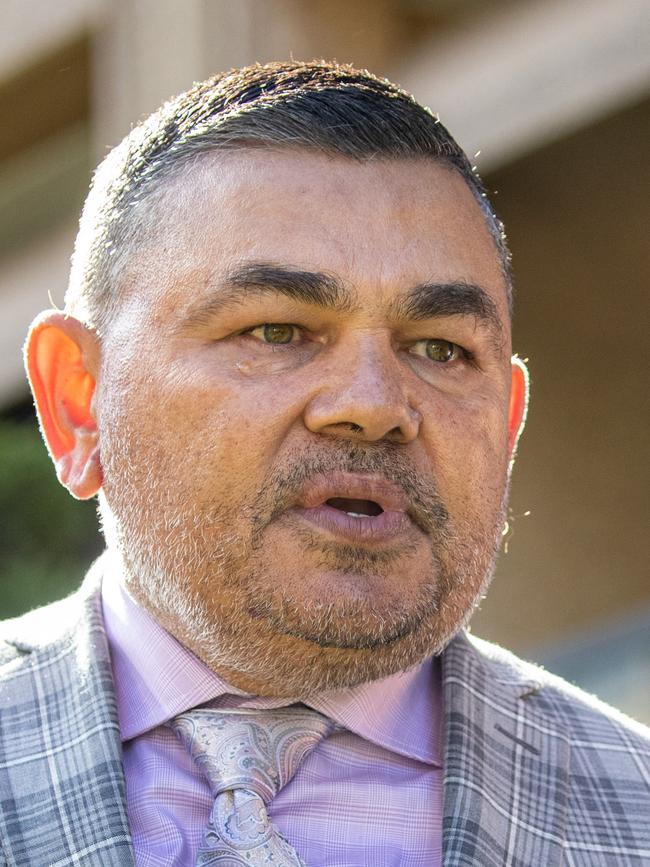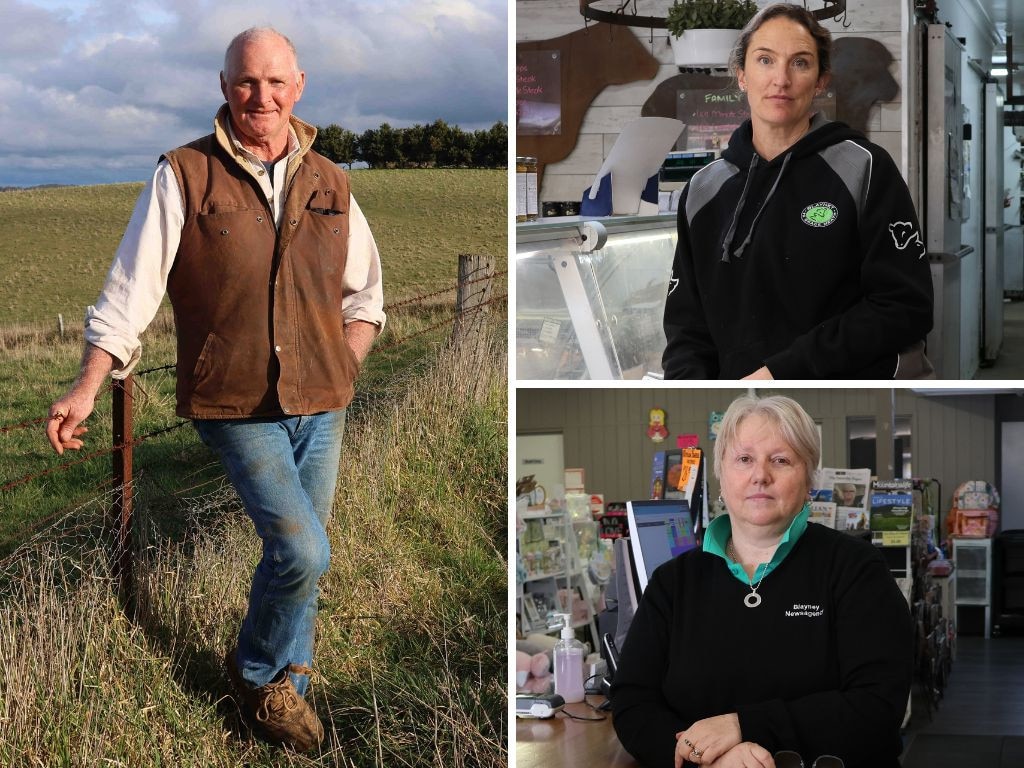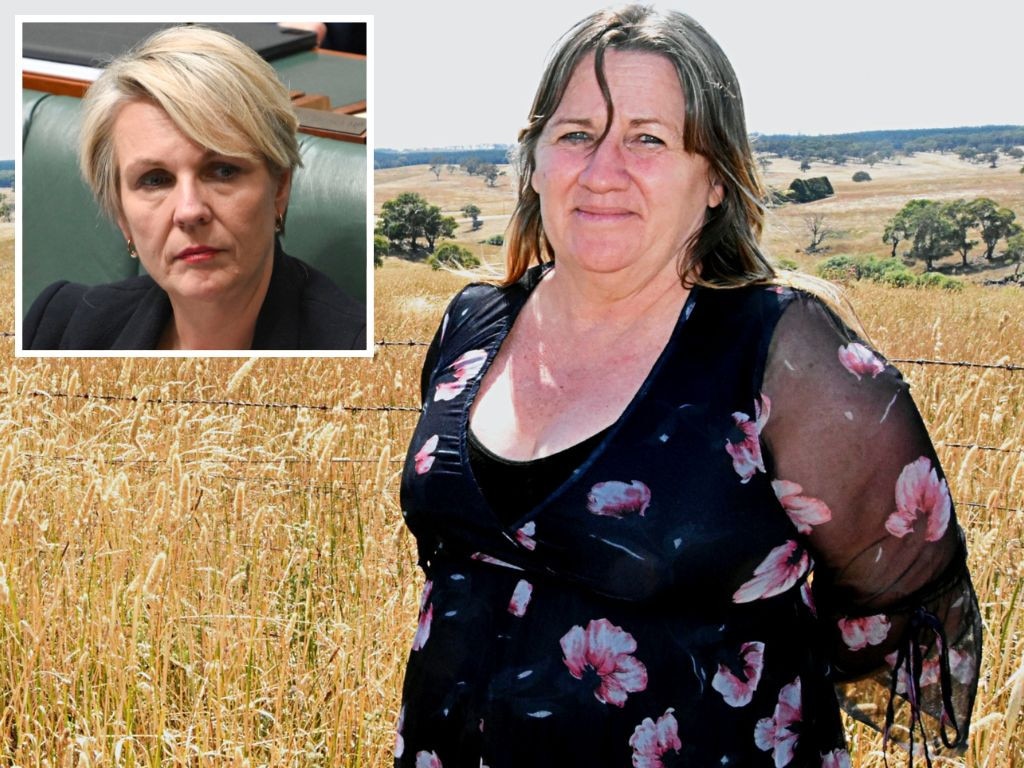Listen to Aboriginal Land Council on McPhillamys goldmine, Tanya Plibersek told
Tanya Plibersek says she rejected the McPhillamys gold mine proposal fearing it could be comparable to the destruction of Juukan Gorge in 2020.

You can now listen to The Australian's articles. Give us your feedback.
Environment Minister Tanya Plibersek’s bid to compare a tailings dam at the rejected McPhillamys goldmine with the destruction of the Juukan Gorge has been called “disingenuous” as pressure grows on the government to overturn the decision.
Ms Plibersek appeared before the media on Wednesday to defend her veto of the long-proposed McPhillamys goldmine near Blayney, NSW.
“After the destruction of Juukan Gorge, all of us said that such a thing must never happen again, that we have to take into account the thousands of years of cultural heritage we have in Australia and better protect it,” she said.
“We haven’t done a particularly good job protecting it until now, and after Juukan, the Liberals, Nationals, Labor, the whole parliament and many of (the media) said we couldn’t allow that kind of destruction of cultural heritage again.”
The Juukan Gorge was an inland cave in the Pilbara destroyed by mining giant Rio Tinto in 2020, sparking a parliamentary inquiry and the resignation of three company executives.
NSW Premier Chris Minns called his federal Labor colleague’s decision “disappointing”, an “error” and “absolutely” the wrong call, saying the entire project could now “fall over”.
“To be knocked over at the eleventh hour is disappointing in terms of mining gold and other critical minerals in NSW, which we desperately need,” he said on Wednesday during a budget estimates hearing, admitting his government was near powerless against Ms Plibersek’s decision.
“It’s not as simple as me saving the mine, it’s not possible for me to do that, we never said we could.”
Wiradjuri leader and former NSW Land Council chair Roy Ah-See said the fault lay in Ms Plibersek preferring the claims of the little-known Wiradjuri Traditional Owners Central West Aboriginal Corporation over the Orange Local Aboriginal Land Council, which has cultural authority in the area.
“I would be led by the local Aboriginal Land Council in relation to the damage that could be caused or that will be caused, and the Land Council isn’t opposed to this project,” Mr Ah-See said.
“To draw a parallel, I think it’s disingenuous. (The government is) out of touch with community control, and who has cultural authority in our community.”

Ms Plibersek said the Albanese government was sound in consulting the Central West Aboriginal Corporation, given the former Coalition government had similarly turned to it in deciding not to progress construction atop Bathurst’s Mount Panorama.
Mr Ah-See said that project also should have been left to the Orange Local Land Council.
“It’s concerning for industry and should be concerning for local Aboriginal land councils that these people can speak to ministers and governments and have this type of influence,” he said. “Local Aboriginal land councils constantly have to deal with impediments that are put up from the Office of Environment for us to do any developments.
“This is about economic empowerment for Aboriginal people … the biggest killer of Aboriginal people isn’t drugs and alcohol, it’s welfare dependency and absolute poverty.”
Last Wednesday, Regis Resources managing director Jim Beyer said an alternate proposal “could take between five and 10 years, with no certainty of a viable alternative being realised”, an assertion Ms Plibersek called “nonsense”.
“The bulk of the project has been approved,” she said. “They continue to tell people there … is $7bn worth of gold in the ground (at the proposed site). If that’s the case, it’s probably worth their while to redesign the project.”








To join the conversation, please log in. Don't have an account? Register
Join the conversation, you are commenting as Logout